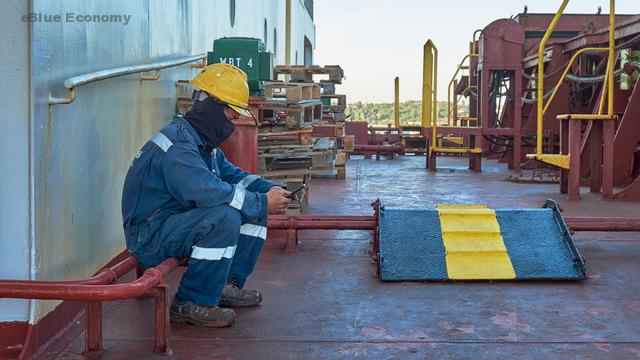A new global pledge signed by over 300 maritime industry and human rights leaders has reset expectations and put accountability on the industry to use their leverage to end the deepening crew change crisis. Signatories include major multinationals BP, Cargill, Rio Tinto and Shell
Those who took up the Neptune Declaration on Seafarer Wellbeing and Crew Change today pledged to deliver on a shared responsibility to resolve a crisis which has seen hundreds of thousands of the world’s seafarers pushed into what amounts to forced labour

General Secretary of the International Workers’ Federation (ITF) Stephen Cotton today welcomed the commitments of the 327 companies and organisations that signed the Neptune Declaration, an initiative led by the Global Maritime Forum.
“The ITF welcomes the commitment from shipowners, charterers, investors, NGOs and industry groups in signing the Neptune Declaration, and now there is an expectation that words are turned into action,” said Cotton.
“With the rise of new variants of Covid, we are sadly seeing governments backsliding and bringing in more restrictions. Right now is the time for every CEO, every board member, of every company that relies on global shipping, to demand that governments don’t forget the key workers driving their economies and unblock their borders to seafarers before this crisis gets worse.”
Companies must now be held to account
“Companies must now be held to account. This means no more charter parties with ‘no crew change’ clauses: charterers must work with shipowners to facilitate crew changes. This means investors asking the companies they own and deal with what the companies are doing to address the crisis. And this means asking why any company in the industry didn’t sign this declaration,” said Cotton.
Signatories of the Neptune Declaration committed to act including calling industry peers and governments to:
- Recognise seafarers as key workers and give them priority access to Covid-19 vaccines
- Establish and implement gold standard health protocols based on existing best practice
- Increase collaboration between ship operators and charterers to facilitate crew changes
- Ensure air connectivity between key maritime hubs for seafarers














